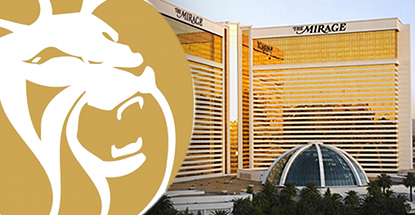 Casino operator MGM Resorts International’s domestic gaming operations helped offset a serious downturn in its Macau business during Q2 2015.
Casino operator MGM Resorts International’s domestic gaming operations helped offset a serious downturn in its Macau business during Q2 2015.
MGM reported revenue of $2.39b in the three months ending June 30, down 7.5% from the same period last year. The drop was entirely the result of a 16% decline in gaming revenue, most of which occurred at MGM China. Operating income fell 1.6% to $348.5m while net income fell 11% to $97.5m.
MGM China’s revenue fell 33% to $557m while earnings dropped 37% to $132m, which sound terrible until you compare it with the truly horrific declines recently reported by Sands China and Wynn Macau. MGM Macau’s VIP tables reported revenue and turnover down 43% and 54% respectively, more than enough to offset a 0.5 point gain in VIP win to 3.2%. Things were slightly less dire at the mass market tables, where revenue fell 23%.
MGM China CEO Grant Bowie said MGM Macau had sought to address the VIP decline by shifting 49 tables from VIP to mass, with mass now representing 60% of the property’s total table allocation. Despite the recent opening of Galaxy Macau’s Phase 2, Bowie said MGM Macau had managed to increase its market share in June. Bowie also confirmed that the in-development MGM Cotai resort remained on target for a Q4 2016 opening.
Moving stateside, MGM properties saw overall revenue rise 4% to $1.7b. Gaming revenue was up 5%, with table game handle rising 4% and slots volume up 7%.. Room occupancy on the Las Vegas Strip held firm at 96% yet revenue per room rose 6%, reflecting MGM’s decision to boost average room rate to capitalize on the hype surrounding the quarter’s blockbuster Mayweather v. Pacquiao boxing match.
On the post-earnings analyst call, MGM CEO Jim Murren touted the company’s plan to boost profit by a total of $300m per year, $250m of which will come via US properties. The “seminal internal transformation” plan kicked off last month and is expected to start showing results in H2 2015 and be fully realized by the end of 2017. About one-third of the increase will be gained by boosting revenue, while the bulk will come via cost reductions.
Murren scoffed at recent rumors that the company was looking to sell its Mirage property in Vegas, stating emphatically that the Mirage “is not on the market.” Murren was far more coy regarding MGM possibly going down the real estate investment trust (REIT) route that other US casino operators have embraced as a way to make it rain for shareholders. Murren said MGM expects to reveal its REIT intentions by the end of the year, “if not sooner.”
